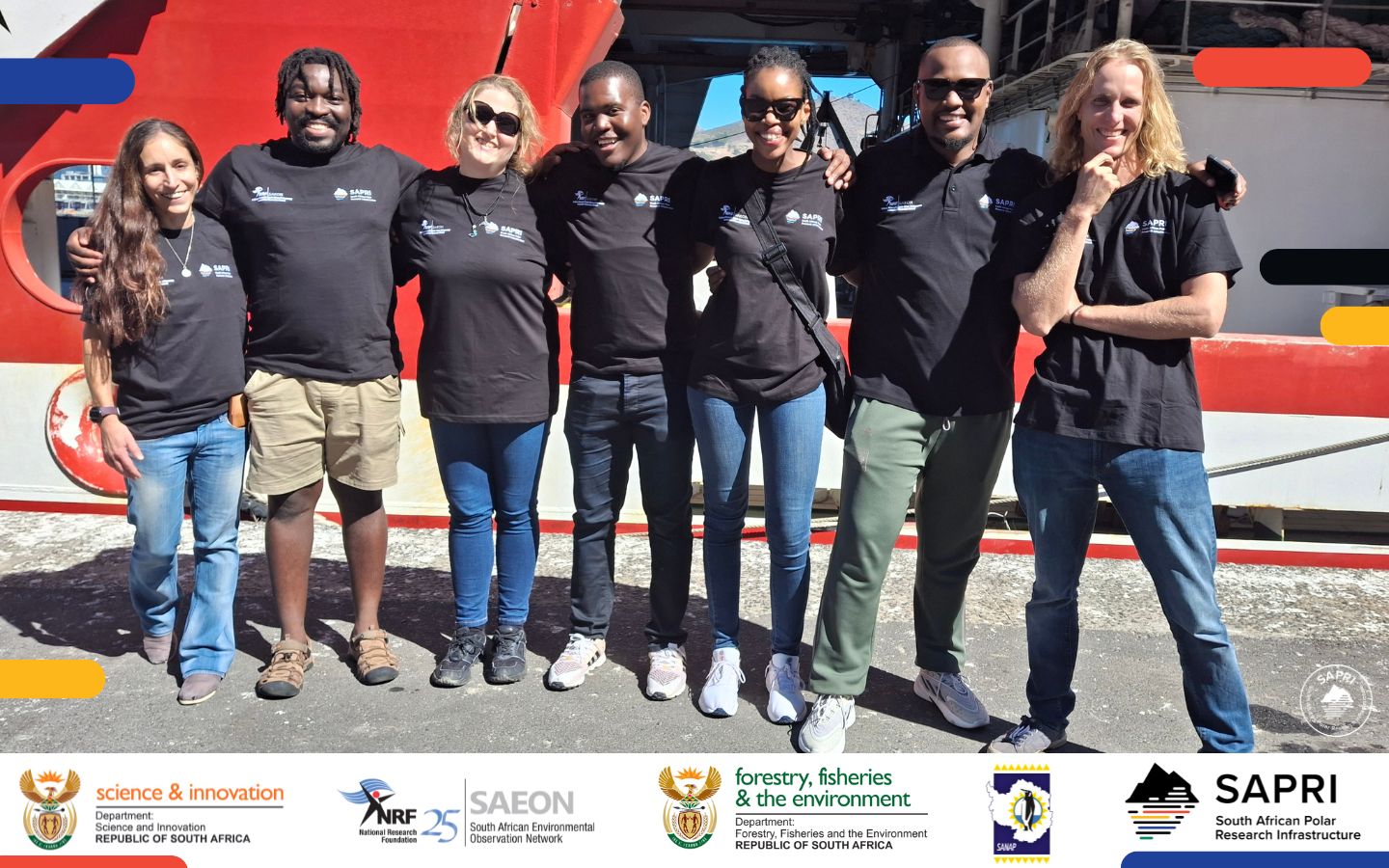The South African Polar Research Infrastructure (SAPRI) participated in the Department of Forestry, Fisheries and the Environment’s (DFFE) annual relief voyage to the sub-Antarctic Marion Island over a period of six weeks, between the months of April and May 2024.
The Marion Island Relief Expedition falls under the South African National Antarctic Programme (SANAP), a South African government programme for research in the Antarctic and sub-Antarctic regions. The meteorological research station at Marion Island is one of the three research stations managed and administered by the DFFE, under SANAP. The Marion Island Relief Expedition is an annual voyage undertaken to service the research station, replenish supplies, and exchange personnel on the island. The voyage is undertaken via the DFFE’s research and supply vessel, the S.A. Agulhas II.
The S.A. Agulhas II departed from East Pier, V&A Waterfront, Cape Town, to Marion Island on the 15th of April 2024, carrying various personnel for the expedition. These included recipients of the National Research Foundation (NRF) SANAP three-year funding cycle grants for science, research, innovation, and social sciences projects; DFFE personnel, including the 2024-2025 M81 overwintering team of field researchers (birders, sealers, botanists, invertebrate biologists) and research station-based personnel (engineers and medical orderly) to relieve the current team on the island; operations and logistics support staff; and the Department of Public Works and Infrastructure (DPWI) personnel for the refurbishment of the research station.
SAPRI’s involvement included the deployment of its first-ever overwintering team on the island to conduct long-term observations (LTO) of top predators such as seals, killer whales, and birds. This work continues the monitoring projects initially undertaken by South African university teams, now managed by SAPRI to ensure long-term continuity beyond the limitations of three-year funding cycles.
SAPRI’s overwintering team comprised skilled field researchers, including Dylan Manyoka (Sealer), Peter Cunningham (Sealer), Megan Clarkson (Sealer and Killer Whaler), and Rhiannon Gill (Birder). Additionally, three SAPRI team members participated in the expedition as part of the Takeover/Relief team to train the new overwintering team: Abu Nguna (LTO-Land Research Coordinator), Yinhla Shihlomule (Top Predator Monitoring Coordinator), and Rabia Mathakutha (Data, Products, and Society Research Coordinator). SAPRI also had help from Prof. Nico de Bruyn, the Principal Investigator of the Marion Island Marine Mammal Programme (MIMMP) and Advisor of the Top Predator LTO Project, and Tavis Dalton, a former Marion Island Sealer and Killer whaler, who both assisted with the training.
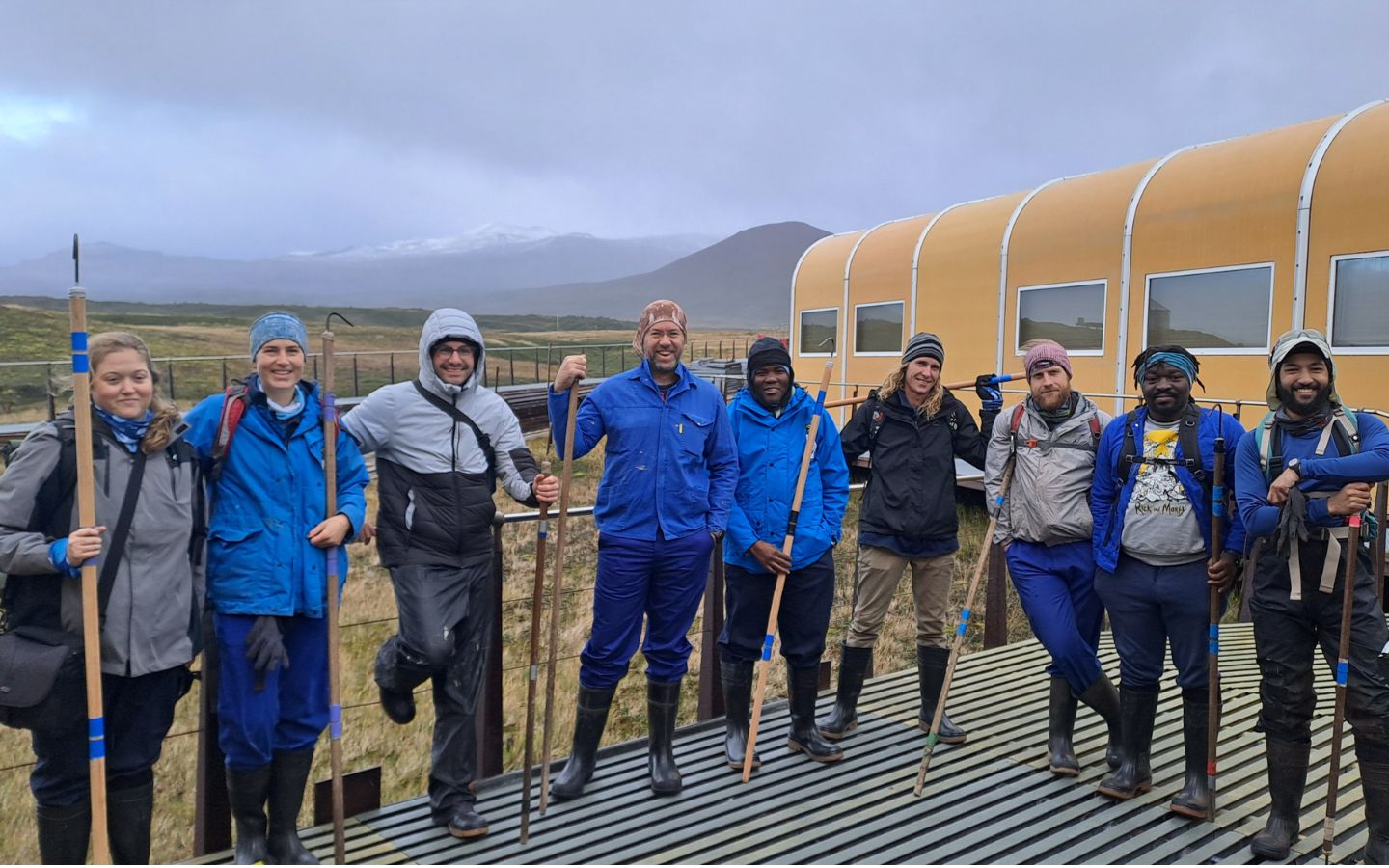
The Top Predator Long-term Observation team at Marion Island during the 2024 Relief Voyage. L-R: Megan Clarkson, Tammy Eggeling and Tavis Dalton (M81, M80 and M76 Sealer and Killer Whaler, respectively), Prof. Nico de Bruyn (MIMMP Principal Investigator), Dylan Manyoka (M81 Sealer), Peter Cunningham (M81 Sealer), Dylan Seaton (M80 Sealer), Yinhla Shihlomule (SAPRI Top Predator Monitoring Coordinator), and Zafar Monier (M80 Sealer).
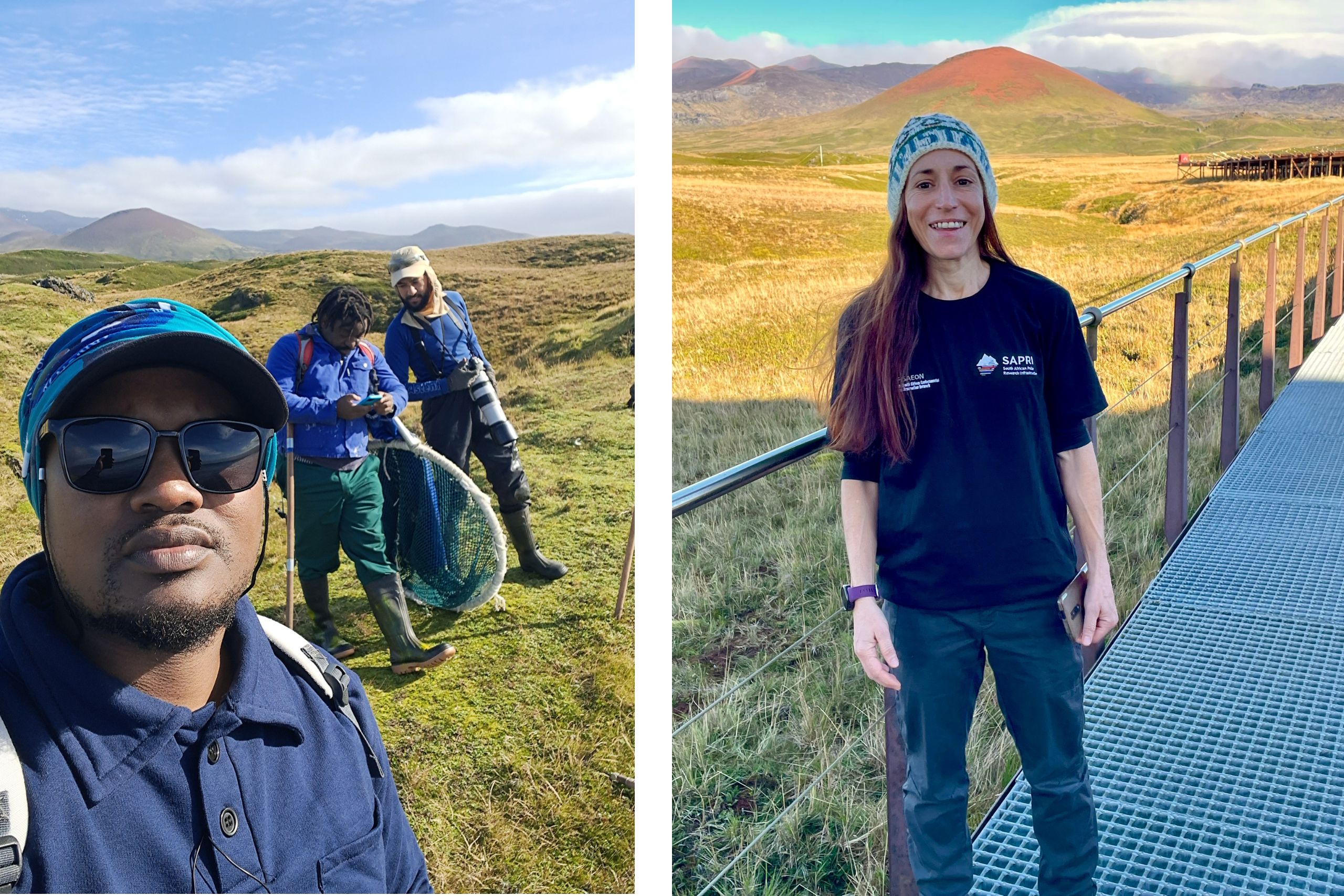
L-R: Abu Nguna (SAPRI LTO-Land Research Coordinator) with Yinhla Shihlomule (SAPRI Top Predator Monitoring Coordinator) and Zafar Monier (M80 Sealer) in the background, and Rhiannon Gill (SAPRI M81 Birder), at Marion Island during the 2024 Relief Voyage.
The Top Predator LTO Project of SAPRI forms part of the LTO-Land Integrated Facility (IF), and is coordinated by Yinhla Shihlomule. Rabia Mathakutha’s involvement included collaboration with Prof. Michelle Greve from the University of Pretoria on a NRF-SANAP funded project to investigate the impacts of the invasive house mouse (Mus musculus) on the vegetation and invertebrates of Marion Island.
SAPRI deployed six Argo floats en route to Marion Island with help from the DFFE Ship-based Chief Scientist, Mr Marcel van den Berg. These Argo floats are dedicated to coastal and under-resourced high schools adopted by the NRF’s South African Environmental Observation (SAEON) Egagasini Node, as part of the SAEON and SAPRI Adopt-a-Float Programme. Each school will have the opportunity to track its Argo float’s progress through the Southern Ocean. Argo floats are oceanographic instruments that measure temperature and salinity in the top 2000 metres of the ocean. This information provides scientists with unprecedented free and open quality-controlled datasets for climate change research and ocean monitoring.
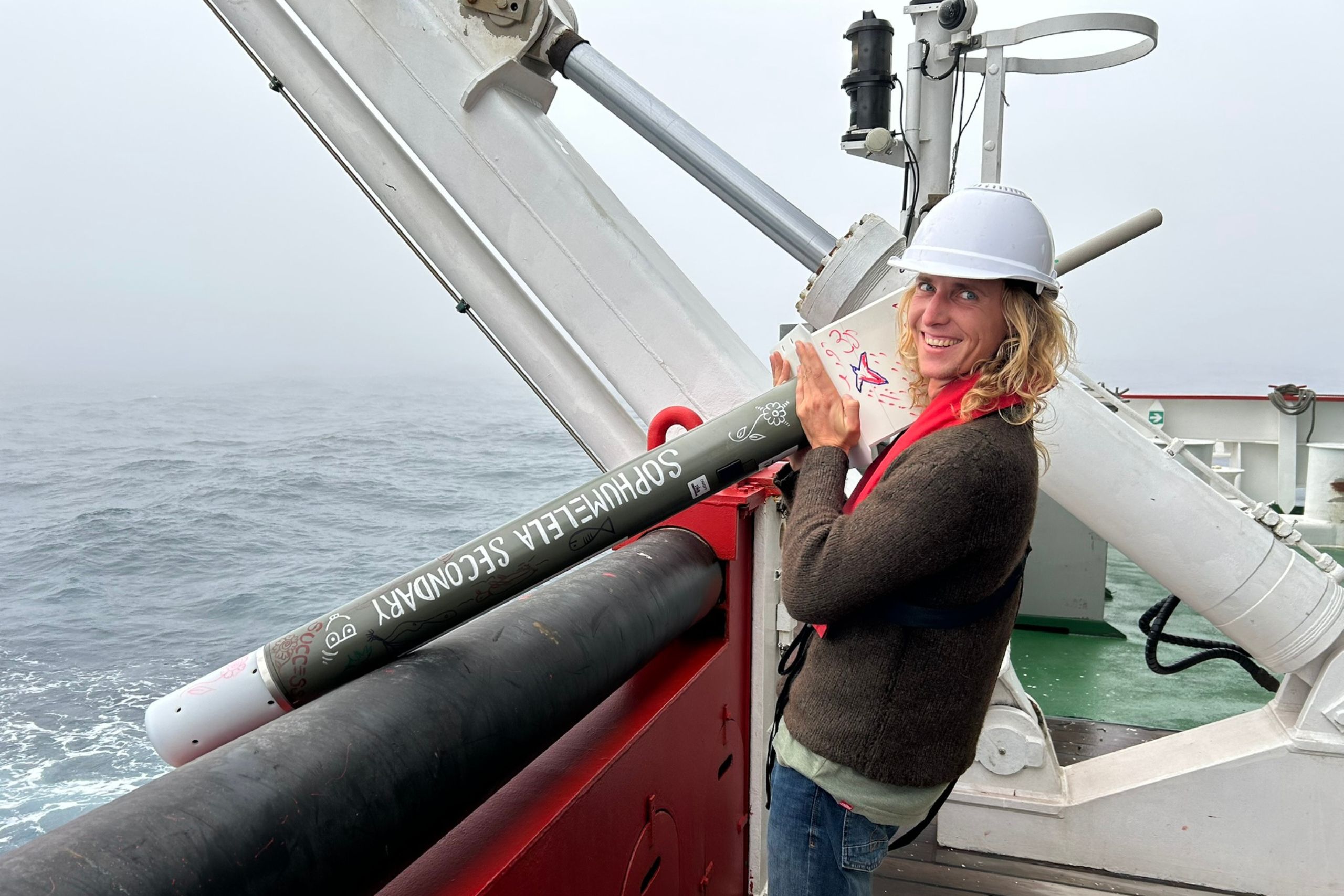
Peter Cunningham (SAPRI M81 Sealer) aboard the S.A. Agulhas II about to deploy one of the six SAPRI Argo floats en route to Marion Island. This Argo float, specifically, is dedicated to Sophumelela Secondary school as part of the SAEON and SAPRI Adopt-a-Float Programme.
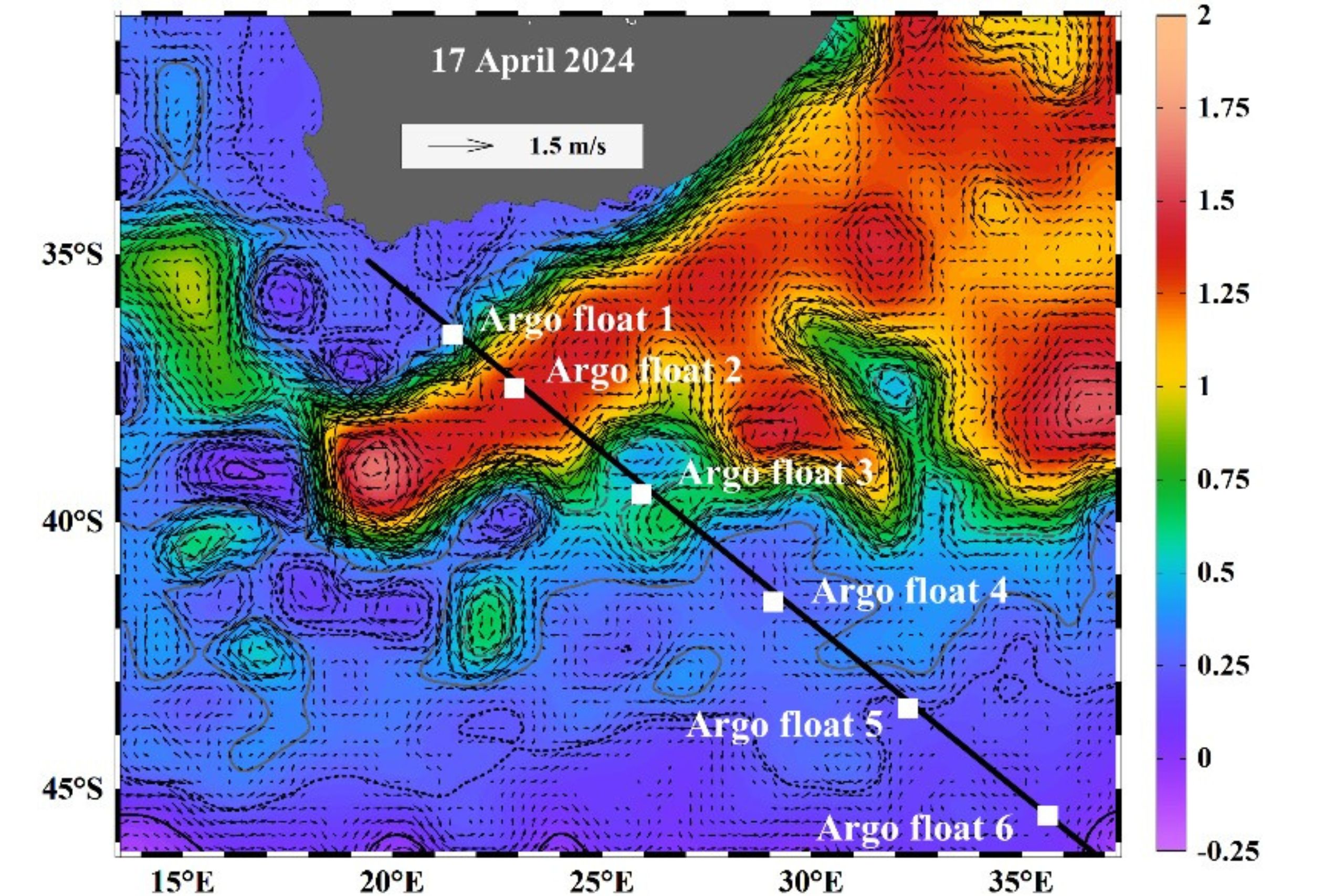
Altimetry map demonstrating the deployment positions of the six SAPRI Argo floats deployed aboard the S.A. Agulhas II en route to Marion Island (map by Tarron Lamont (Oceans and Coastal Researcher, DFFE)).
The Marion Island Relief Expedition concluded on the 10th of May 2024. The S.A. Agulhas II set sail from Marion Island back to South Africa on the 11th of May 2024, stopping at various stations along the way for oceanographic sampling. The relief expedition was a resounding success, with many of the field and research station personnel receiving adequate training for the year ahead. Additionally, the expedition met the Takeover/Relief operation objectives of the DFFE and DPWI, achieving significant progress in backloading the dismantled materials of the old research station decommissioned in 2023 onto the ship.
The S.A. Agulhas II successfully docked in Gqeberha, Eastern Cape, on the 16th of May 2024, where the DFFE hosted the S.A. Agulhas II Open Day event from 17 to 18 May 2024. During this two-day event, various schools and the public of the Eastern Cape had the opportunity to tour the country’s only icebreaker and polar research vessel. SAPRI presented at the Open Day, showcasing the relevance of research infrastructure for such expeditions.
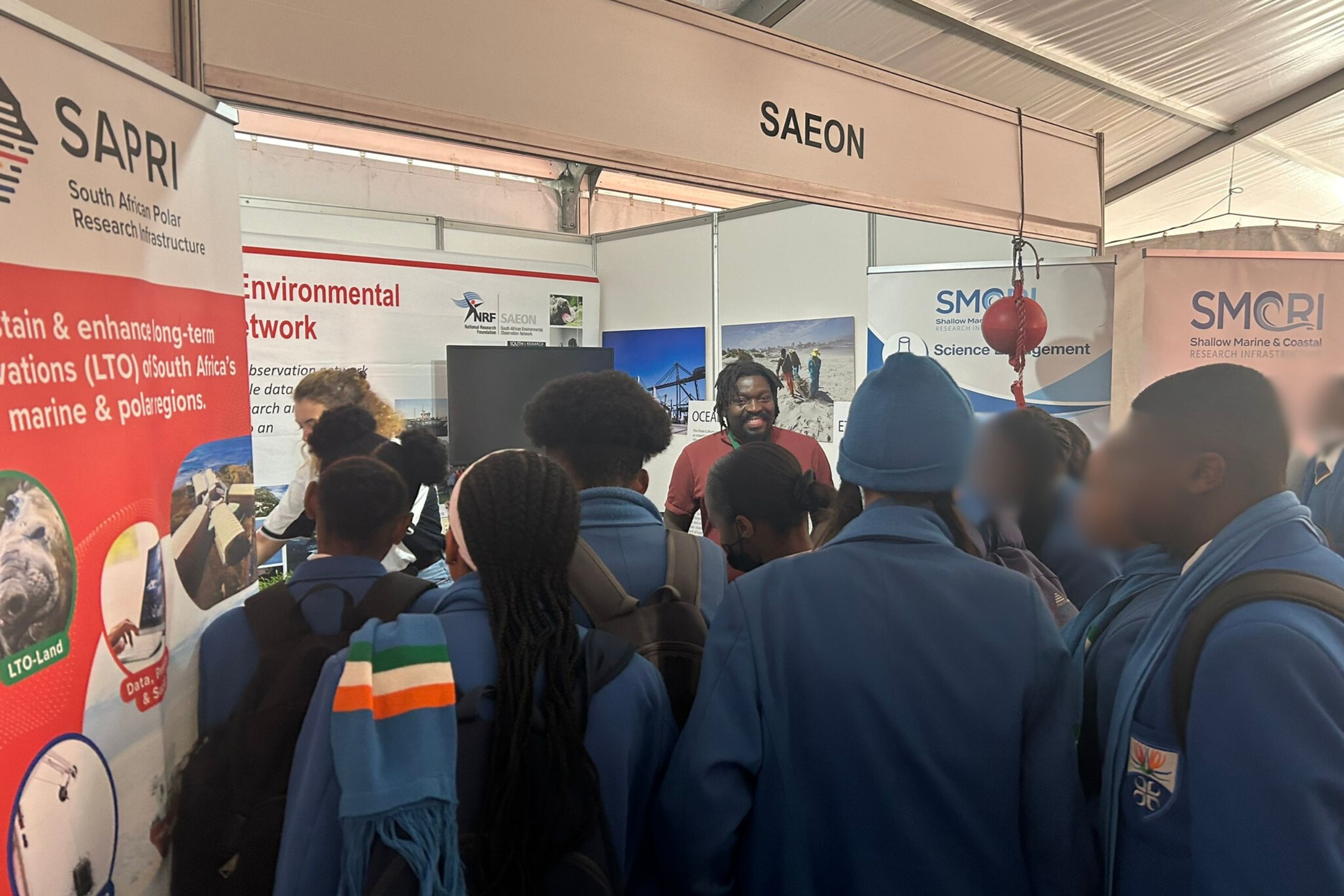
Yinhla Shihlomule (SAPRI Top Predator Monitoring Coordinator) interacting with high school learners and representing SAPRI at the S.A. Agulhas II Open Day event in Gqeberha, 17 – 18 May 2024. SAPRI shared a booth with its sister research infrastructure (RI), SMCRI. Both RIs are hosted by the NRF-SAEON.
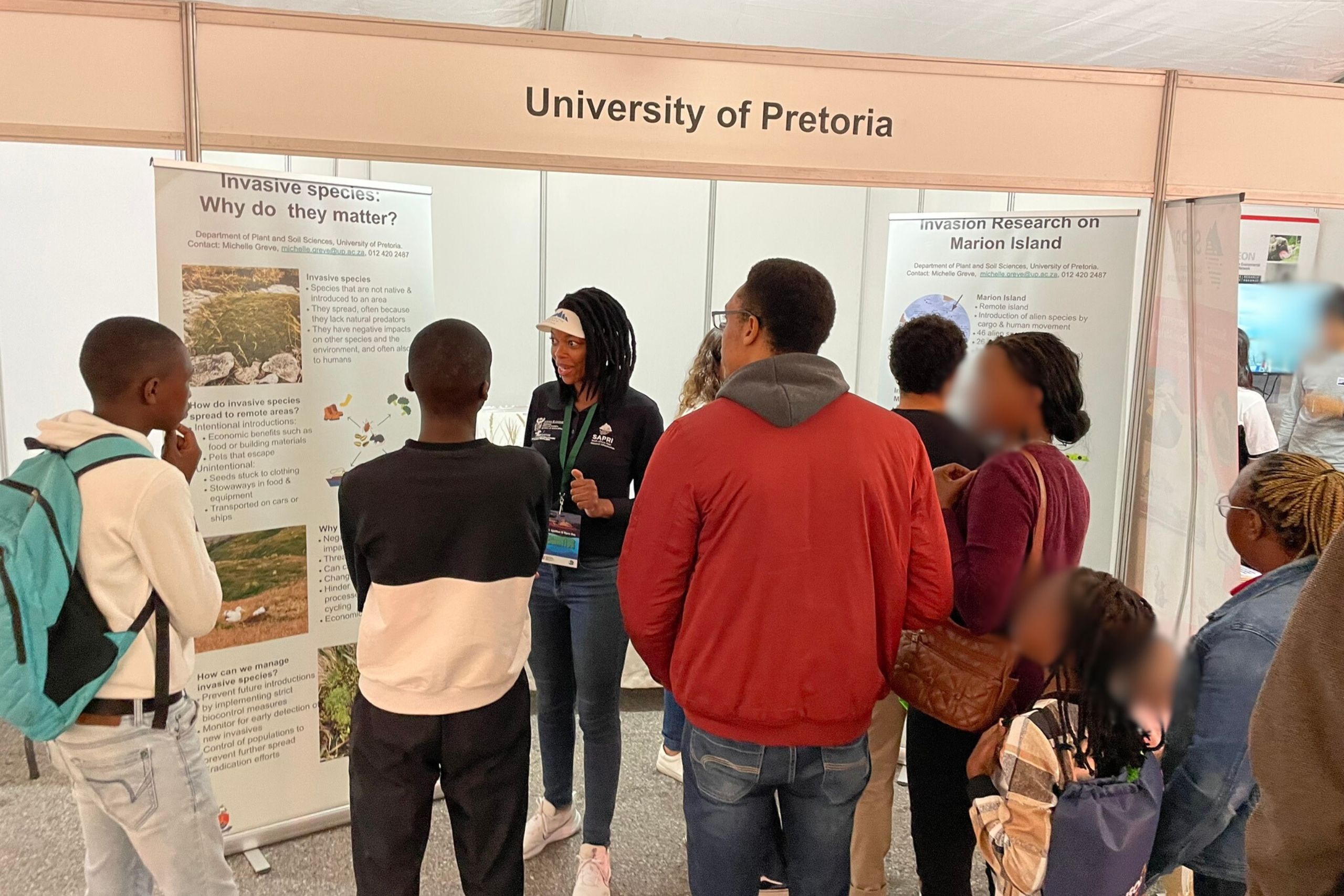
Rabia Mathakutha (SAPRI – Data, Products, and Society Research Coordinator), interacting with the general public and representing the University of Pretoria SANAP project at the S.A. Agulhas II Open Day event in Gqeberha, 17 – 18 May 2024.
The S.A. Agulhas II returned to Cape Town on Tuesday, 21 May 2024, safely bringing back the 2023-2024 M80 overwintering team. SAPRI looks forward to more expeditions and continued partnership with the DFFE, and to continue the sustainability of the Top Predator LTO research and datasets.
Rabia Mathakutha, South African Polar Research Infrastructure, 6 June 2024
